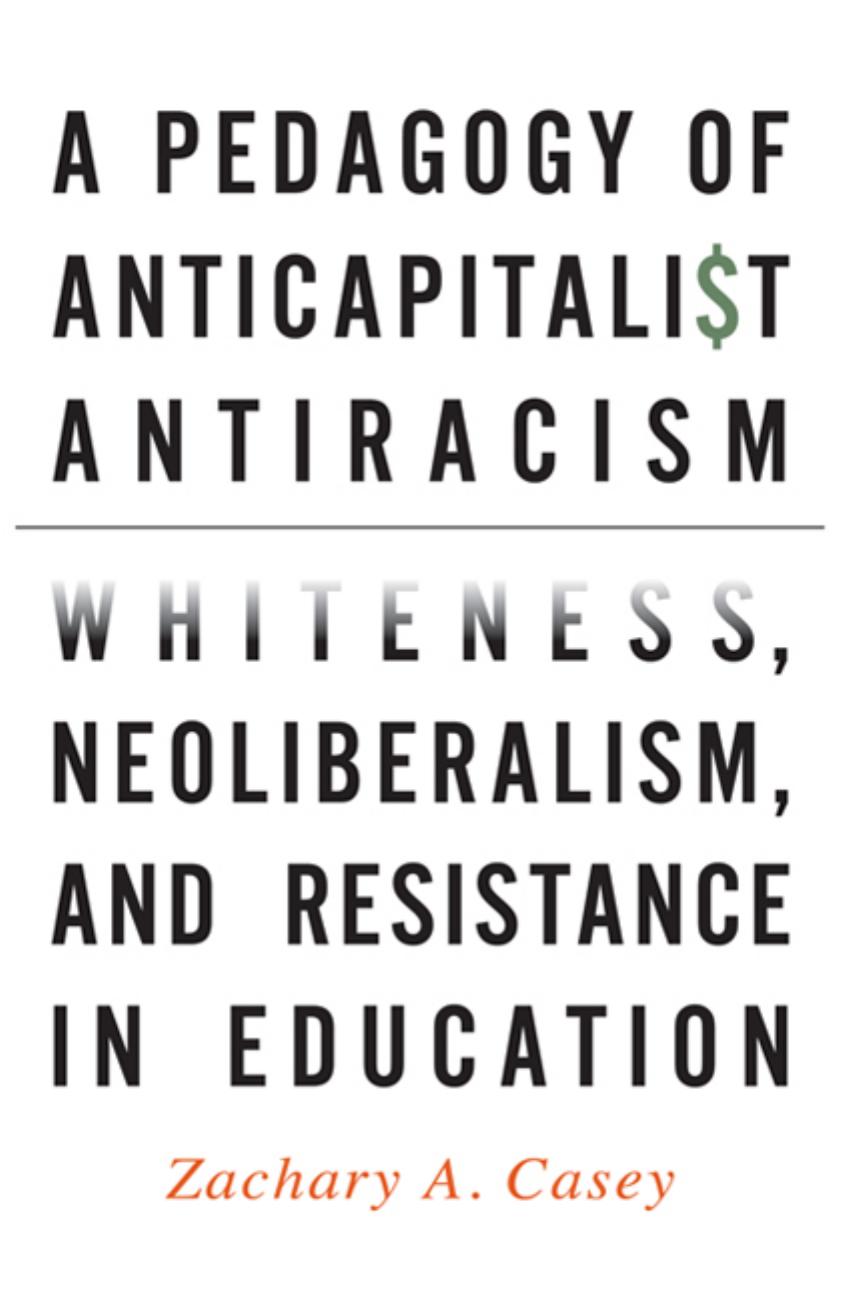A Pedagogy of Anticapitalist Antiracism by Zachary A. Casey

Author:Zachary A. Casey
Language: eng
Format: epub, pdf
Publisher: State University of New York Press
Published: 2016-02-14T16:00:00+00:00
If the racial other against which whites in the United States have constructed their identity (Morrison, 1993) now occupies the White House, it is not hard to imagine the visceral pain some white people are feeling. Surely Obamaâs presidency, and now his second term in office, means that something has truly changed about what it means to be a ârealâ American, and thus, who they are. Despite the clearly white-supremacist implications of such thinking, my reading of whiteness earlier must be theorized alongside the Tea Party movement to understand not only the racial context of the movement, but also the extent to which the Tea Party movement is a response to forces far greater than the individual participants who populate the protests.
To accomplish this, it is useful to start with a specific example of Tea Party discourse:
Dee Close, a 47-year-old [white] homemaker in Memphis, said she was worried about a âdriftâ in the country. âOver the last three or four years, Iâve realized how immense that drift has been away from what made this country great,â Ms. Close said. (Zernike & Thee-Brenan, 2010)
In this short description and quote, we can actually see the ways in which nationalism and whiteness coalesce in the Tea Party movement. Namely, Ms. Close is harkening back to a time that has passed when this country was âgreat,â presupposing that this is no longer the case. She uses a very vague term, âdrift,â to explain what has made the country no longer great, and also points to just the last âthree or four yearsâ in which the fall from greatness has seemingly taken place. If we contextualize this individual womanâs statement with larger national processes in the time frame she is talking about, since 2006, we can point to the midterm electoral victory of Democrats in the United States Congress as the potential cause of the âdriftâ Ms. Close is worried about. Zernike and Thee-Brenan (2010) write, âWhile most Americans blame the Bush administration or Wall Street for the current state of the American economy, the greatest number of Tea Party supporters blame Congress.â It should not be surprising, then, that Ms. Close as a self-identified supporter of the Tea Party movement points to the last time Congress shifted hands as the start of the period of âdriftâ that has seen the country fall from âgreatness.â
Yet we must also attempt to contextualize Ms. Closeâs response, in terms of both whiteness and nationalism, from a national perspective. The Democratic victory in 2006 spurred social conservatives who were not opposed to George W. Bush and the two ongoing conflicts (wars) in Iraq and Afghanistan to resist their newly elected representatives. Appropriating nationalist discourse, they accused the new Congress of wishing to usher in socialism, raise taxes, and harm small businesses. Right-wing pundits, writers, and leaders encouraged these fears in order to build solidarity and a base from which to campaign for the presidential election of 2008. Of course, 2008 saw Democrats take even more seats in both houses of Congress and also saw the election of the first African American president in U.
Download
A Pedagogy of Anticapitalist Antiracism by Zachary A. Casey.pdf
This site does not store any files on its server. We only index and link to content provided by other sites. Please contact the content providers to delete copyright contents if any and email us, we'll remove relevant links or contents immediately.
The Art of Coaching Workbook by Elena Aguilar(48020)
Trainspotting by Irvine Welsh(20041)
Twilight of the Idols With the Antichrist and Ecce Homo by Friedrich Nietzsche(17701)
Fangirl by Rainbow Rowell(7825)
Periodization Training for Sports by Tudor Bompa(7322)
Change Your Questions, Change Your Life by Marilee Adams(6632)
This Is How You Lose Her by Junot Diaz(5747)
Grit by Angela Duckworth(4724)
Red Sparrow by Jason Matthews(4653)
Asking the Right Questions: A Guide to Critical Thinking by M. Neil Browne & Stuart M. Keeley(4557)
Paper Towns by Green John(4162)
Room 212 by Kate Stewart(4097)
Ken Follett - World without end by Ken Follett(3967)
The Sports Rules Book by Human Kinetics(3579)
Housekeeping by Marilynne Robinson(3392)
The Motorcycle Diaries by Ernesto Che Guevara(3325)
Introduction to Kinesiology by Shirl J. Hoffman(3297)
Exercise Technique Manual for Resistance Training by National Strength & Conditioning Association(3285)
Double Down (Diary of a Wimpy Kid Book 11) by Jeff Kinney(3264)
